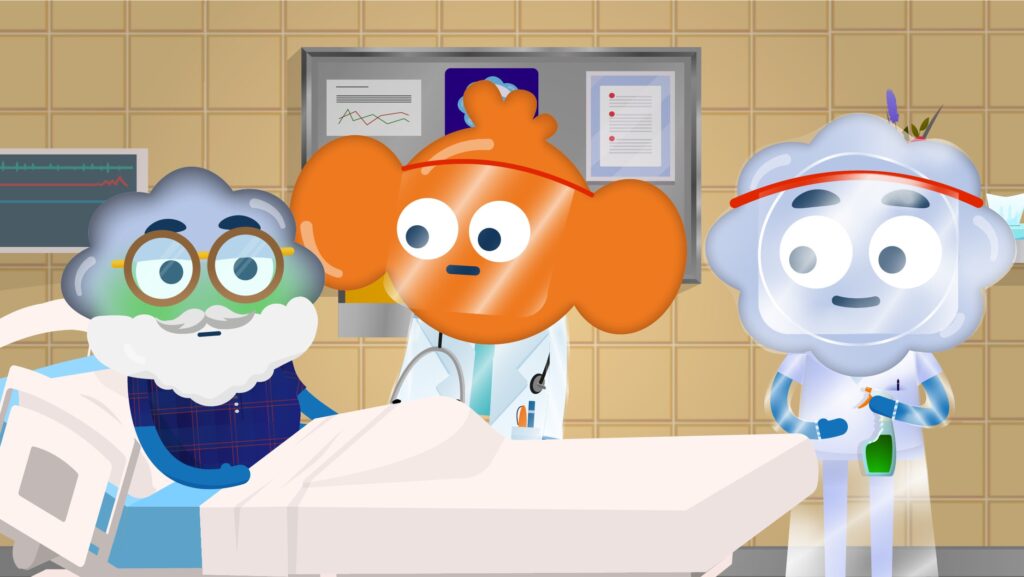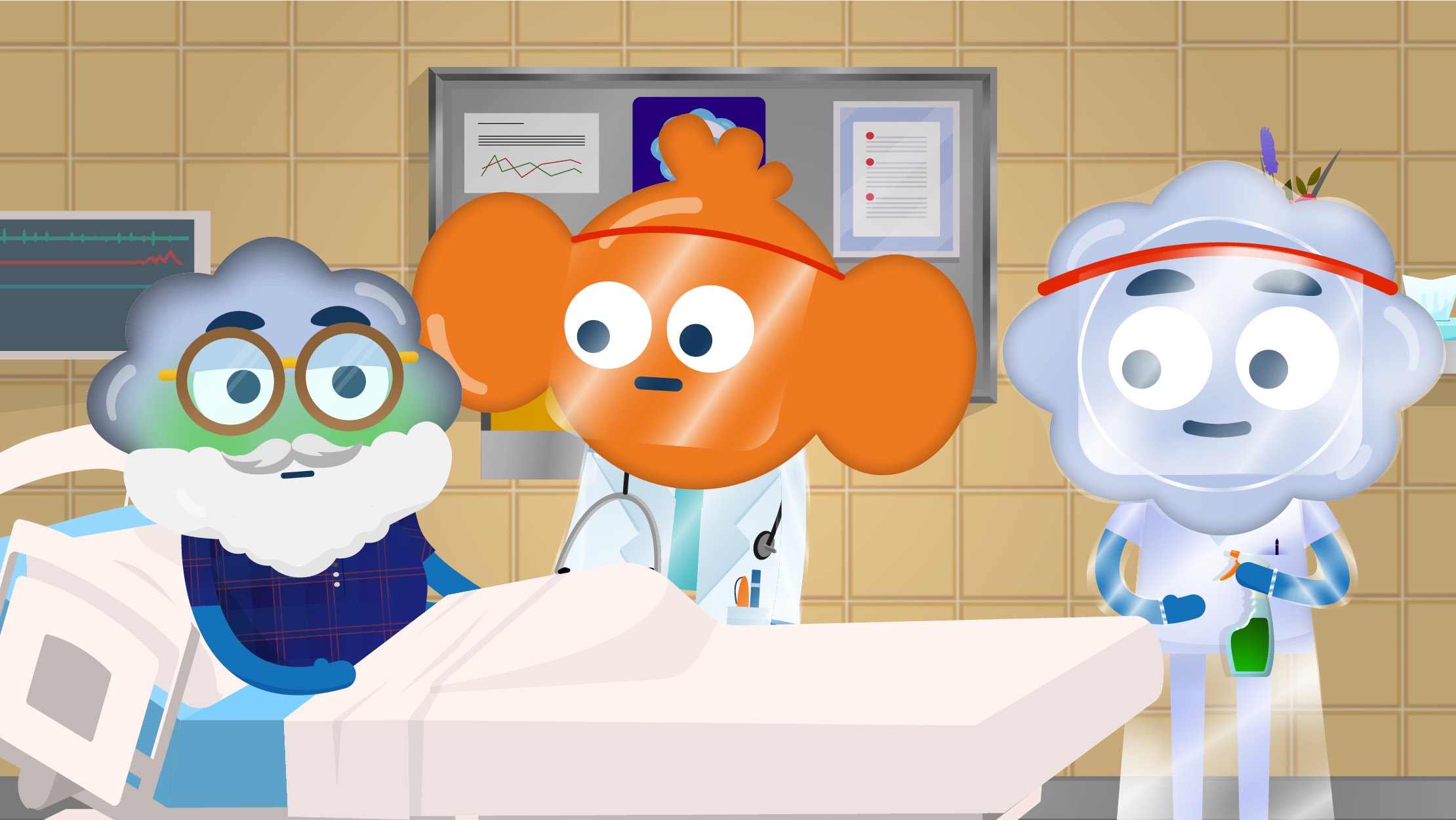
Mastering Infection Control: Why an Infectious Control Course is Essential
In today’s interconnected world, the threat of infectious diseases looms large. From healthcare settings to community environments, the potential for outbreaks and the spread of pathogens is a constant concern. This is where the importance of robust infection control measures comes into play. An infectious control course provides the knowledge, skills, and practical training needed to effectively prevent and manage the spread of infections, safeguarding individuals, communities, and entire healthcare systems.
This article will delve into the crucial aspects of infection control, exploring the benefits of undertaking an infectious control course, the key topics covered, and the career opportunities that can arise from this specialized training. We’ll also examine the latest trends and challenges in the field, highlighting the ongoing need for qualified professionals who can champion infection prevention strategies.
Understanding the Scope of Infection Control
Infection control encompasses a wide range of practices and procedures designed to minimize the transmission of infectious agents. It’s not just about hand hygiene; it’s a multifaceted discipline that includes:
- Surveillance and Monitoring: Tracking infection rates and identifying potential outbreaks.
- Hand Hygiene: Promoting proper handwashing techniques and the use of hand sanitizers.
- Personal Protective Equipment (PPE): Selecting and using appropriate PPE, such as gloves, masks, and gowns.
- Environmental Cleaning and Disinfection: Maintaining a clean and disinfected environment to reduce the presence of pathogens.
- Sterilization and Disinfection of Medical Equipment: Ensuring that medical equipment is properly sterilized or disinfected to prevent cross-contamination.
- Isolation Precautions: Implementing isolation measures to prevent the spread of infections from infected individuals.
- Waste Management: Safely disposing of infectious waste to minimize the risk of exposure.
- Vaccination Programs: Promoting vaccination to protect individuals and communities from vaccine-preventable diseases.
- Antimicrobial Stewardship: Using antibiotics and other antimicrobial agents responsibly to prevent the development of antimicrobial resistance.
A comprehensive infectious control course will cover each of these areas in detail, providing participants with a thorough understanding of the principles and practices of infection prevention.
The Benefits of Taking an Infectious Control Course
Investing in an infectious control course offers numerous benefits, both for individuals and organizations. Here are some key advantages:
- Enhanced Knowledge and Skills: Gain a deep understanding of infectious disease transmission, prevention strategies, and best practices.
- Improved Patient Safety: Reduce the risk of healthcare-associated infections (HAIs) and improve patient outcomes.
- Reduced Healthcare Costs: Prevent infections, thereby reducing the need for costly treatments and hospital readmissions.
- Compliance with Regulations: Meet regulatory requirements and accreditation standards related to infection control.
- Career Advancement Opportunities: Open doors to specialized roles in infection prevention and control.
- Increased Confidence: Develop the confidence to implement and maintain effective infection control programs.
- Protecting the Community: Contribute to the overall health and safety of the community by preventing the spread of infectious diseases.
For healthcare professionals, an infectious control course is an invaluable asset that can significantly enhance their professional capabilities and contribute to a safer healthcare environment. [See also: The Importance of Hand Hygiene in Healthcare]
Key Topics Covered in an Infectious Control Course
A well-structured infectious control course will cover a wide range of essential topics, including:
Fundamentals of Microbiology and Infectious Diseases
This module provides a foundational understanding of microorganisms, including bacteria, viruses, fungi, and parasites. It covers the mechanisms of infection, disease transmission, and the body’s immune response. Understanding these basics is crucial for implementing effective infection control strategies.
Surveillance and Epidemiology of Infections
This section focuses on the methods used to track and monitor infections within a population. It covers data collection, analysis, and interpretation, allowing participants to identify trends, detect outbreaks, and implement targeted interventions. Learning about epidemiological principles is vital for proactive infection control.
Hand Hygiene and Personal Protective Equipment (PPE)
This module emphasizes the importance of hand hygiene as the cornerstone of infection prevention. It covers proper handwashing techniques, the use of alcohol-based hand rubs, and the selection and use of appropriate PPE. Practical demonstrations and hands-on training are often included to reinforce these skills. Mastering hand hygiene and PPE protocols is fundamental to any infectious control course.
Cleaning, Disinfection, and Sterilization
This section covers the principles and methods of cleaning, disinfecting, and sterilizing medical equipment and environmental surfaces. It includes information on different types of disinfectants, sterilization techniques, and the proper handling of contaminated materials. Understanding these processes is essential for maintaining a safe and hygienic environment.
Isolation Precautions
This module focuses on the different types of isolation precautions used to prevent the spread of infections from infected individuals. It covers standard precautions, contact precautions, droplet precautions, and airborne precautions, as well as the proper use of isolation rooms and equipment. Knowing how to implement isolation protocols is crucial for preventing the transmission of highly contagious diseases.
Antimicrobial Stewardship
This section addresses the growing problem of antimicrobial resistance and the importance of using antibiotics and other antimicrobial agents responsibly. It covers strategies for optimizing antimicrobial use, reducing unnecessary prescriptions, and preventing the emergence of resistant organisms. Promoting antimicrobial stewardship is a key component of modern infectious control course curriculums.
Outbreak Management
This module provides training on how to identify, investigate, and manage outbreaks of infectious diseases. It covers outbreak investigation techniques, contact tracing, and the implementation of control measures to contain the spread of infection. Preparing for and managing outbreaks is a critical skill for infection control professionals. [See also: Strategies for Preventing Hospital-Acquired Infections]
Infection Control in Specific Settings
Many infectious control courses also include modules that focus on infection control in specific settings, such as hospitals, long-term care facilities, schools, and community environments. These modules address the unique challenges and considerations for each setting. Tailoring infection control practices to specific environments is essential for effective prevention.
Career Opportunities with an Infectious Control Course
Completing an infectious control course can open doors to a variety of career opportunities in healthcare and public health. Some common roles include:
- Infection Control Practitioner: Responsible for developing, implementing, and evaluating infection control programs in healthcare settings.
- Infection Preventionist: Works to prevent and control infections in hospitals, clinics, and other healthcare facilities.
- Public Health Nurse: Investigates and controls the spread of infectious diseases in the community.
- Epidemiologist: Studies the patterns and causes of disease in populations and develops strategies to prevent and control outbreaks.
- Healthcare Administrator: Oversees infection control programs and ensures compliance with regulations.
- Environmental Health Specialist: Inspects healthcare facilities and other environments to identify and mitigate infection risks.
The demand for qualified infection control professionals is expected to grow in the coming years, driven by increasing concerns about infectious diseases, antimicrobial resistance, and the need for improved patient safety. An infectious control course is a valuable investment that can lead to a rewarding and impactful career.
The Future of Infection Control
The field of infection control is constantly evolving, with new challenges and advancements emerging regularly. Some key trends shaping the future of infection control include:
- Emerging Infectious Diseases: The emergence of new and re-emerging infectious diseases, such as COVID-19, poses a constant threat and requires ongoing vigilance and preparedness.
- Antimicrobial Resistance: The increasing prevalence of antimicrobial-resistant organisms is a major concern that requires innovative strategies for prevention and treatment.
- Technological Advancements: New technologies, such as artificial intelligence and data analytics, are being used to improve infection surveillance, outbreak detection, and prevention efforts.
- Global Collaboration: International collaboration is essential for addressing global health threats and coordinating infection control efforts across borders.
- Focus on Prevention: A growing emphasis on proactive prevention strategies, such as vaccination and improved hygiene practices, is crucial for reducing the burden of infectious diseases.
To stay ahead of these trends, infectious control courses are constantly being updated to incorporate the latest research, guidelines, and best practices. Continuous learning and professional development are essential for infection control professionals to effectively address the challenges of the future. [See also: The Role of Technology in Infection Control]
Conclusion
An infectious control course is an essential investment for anyone seeking to protect individuals, communities, and healthcare systems from the threat of infectious diseases. By providing comprehensive knowledge, practical skills, and a deep understanding of infection prevention strategies, these courses empower individuals to make a real difference in the fight against infection. Whether you are a healthcare professional, a public health worker, or simply someone who wants to learn more about infection control, an infectious control course can provide you with the tools and knowledge you need to contribute to a safer and healthier world. The importance of effective infection control cannot be overstated, and taking an infectious control course is a crucial step towards mastering this vital discipline. With the ever-present threat of infectious diseases, the need for well-trained and knowledgeable infection control professionals will only continue to grow, making an infectious control course a truly worthwhile investment in your future.

